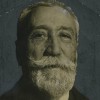By the bye, as I must leave off being young, I find many douceurs [sweets] in being a sort of chaperon, for I am put on the sofa near the fire and can drink as much wine as I like.
Jane Austen (1775-1817) English author
Letter (1813-11-06) to Cassandra Austen
(Source)
Jane was 38 at the time.
Quotations about:
relaxation
Note not all quotations have been tagged, so Search may find additional quotes on this topic.
Idleness is a necessity for the mind, as much as work. Talent is ruined by writing too much, and rusted by not writing at all.
[L’oisiveté est nécessaire aux esprits, aussi bien que le travail. On se ruine l’esprit à trop écrire; on se rouille à n’écrire pas.]Joseph Joubert (1754-1824) French moralist, philosopher, essayist, poet
Pensées [Thoughts], ch. 23 “Des Qualités de l’Écrivain [Of the Qualities of Writers],” ¶ 53 (1805) (1850 ed.) [tr. Lyttelton (1899), ch. 22, ¶ 20]
(Source)
(Source (French)). Alternate translations:The mind must rest as well as work. To write too much ruins it; to leave off writing rusts it.
[tr. Attwell (1896), ¶ 336]One ruins the mind with too much writing. One rusts it by not writing at all.
[tr. Auster (1983), 1805 entry]
Man is so made that he can only find relaxation from one kind of labor by taking up another.
Anatole France (1844-1924) French poet, journalist, novelist, Nobel Laureate [pseud. of Jaques-Anatole-François Thibault]
The Crime of Sylvestre Bonnard, Part 2, ch. 4 “The Little Saint-George,” “June 3” (1881)
(Source)
If we could ever get vacations down to where you wasn’t any more tired on the day one was over than on our regular work day it would be wonderful.
He who without necessity embarks
In many matters, is a fool for slighting
The obvious blessings of a tranquil life.[ὅστις δὲ πράσσει πολλὰ µὴ πράσσειν παρόν,
µῶρος, παρὸν ζῆν ἡδέως ἀπράγµονα.]Euripides (485?-406? BC) Greek tragic dramatist
Antiope [Αντιοπη], frag. 193 (TGF, Kannicht) [Amphion] (c. 410 BC) [tr. Wodhall (1809)]
(Source)
Barnes fragment 104, Musgrave 25. (Source (Greek)). Alternate translation:Whoever is very active when he may be inactive, is a moron,
when he may live pleasantly keeping clear from politics.
[tr. Will (2015)]Whoever is overactive when he could relax
is foolish, for he misses out on a pleasant life.
[Source]
Efficiency is a thief of time when it leaves no leisure.
Marcelene Cox (1900-1998) American writer, columnist, aphorist
“Ask Any Woman” column, Ladies’ Home Journal (1949-02)
(Source)
Happiness is thought to imply leisure; for we toil in order that we may have leisure, as we make war in order that we may enjoy peace.
[δοκεῖ τε ἡ εὐδαιμονία ἐν τῇ σχολῇ εἶναι, ἀσχολούμεθα γὰρ ἵνα σχολάζωμεν καὶ πολεμοῦμεν ἵν᾽ εἰρήνην ἄγωμεν.]
Aristotle (384-322 BC) Greek philosopher
Nicomachean Ethics [Ἠθικὰ Νικομάχεια], Book 10, ch. 7 (10.7) / 1177b.4 (c. 325 BC) [tr. Peters (1893), 10.7.6]
(Source)
(Source (Greek)). Alternate translations:Happiness is thought to stand in perfect rest; for we toil that we may rest, and war that we may be at peace.
[tr. Chase (1847), ch. 6]It would seem that happiness is the very antithesis of a busy life, in that it is compatible with perfect leisures. And it is with such leisure in view that a busy life is always led, exactly as war is only waged for the sake of ultimate peace.
[tr. Williams (1869)]The end of labor is to gain leisure.
[in Ballou, Treasury of Thought (1872)]Happiness is thought to depend on leisure; for we are busy that we may have leisure, and make war that we may live in peace.
[tr. Ross (1908)]Happiness is thought to involve leisure; for we do business in order that we may have leisure, and carry on war in order that we may have peace.
[tr. Rackham (1934)]Happiness seems to reside in leisure, since we do unleisured things in order to be at leisure, and wage war in order to live in peace.
[tr. Reeve (1948)]Happiness is thought to depend on leisure; for we toil for the sake of leisurely activity, and we are at war for the sake of peaceful activity.
[tr. Apostle (1975)]Happiness seems to depend on leisure, because we work to have leisure, and wage war to live in peace.
[tr. Crisp (2000)][Because], happiness seems to reside in leisure, we labor [sacrifice leisure] so that we may have leisure.
[tr. @sentantiq (2018)]
Consequently, happiness is not found in amusement, for it would be also absurd to maintain that the end of man is amusement and that men work and suffer all their life for the sake of amusement. For, in short, we choose everything for the sake of something else, except happiness, since happiness is the end of a man. So to be serious and work hard for the sake of amusement appears foolish and very childish, but to amuse oneself for the sake of serious work seems, as Anacharsis put it, to be right; for amusement is like relaxation, and we need relaxation since we cannot keep on working hard continuously. Thus amusement is not the end, for it is chosen for the sake of serious activity.
Aristotle (384-322 BC) Greek philosopher
Nicomachean Ethics [Ἠθικὰ Νικομάχεια], Book 10, ch. 6, sec. 6 (10.6.6) / 1176b.28ff (c. 325 BC) [tr. Apostle (1975)]
(Source)
(Source (Greek)). Alternate translations:Happiness then stands not in amusement; in fact the very notion is absurd of the End being amusement, and of one’s toiling and enduring hardness all one’s life long with a view to amusement: for everything in the world, so to speak, we choose with some further End in view, except Happiness, for that is the End comprehending all others. Now to take pains and to labour with a view to amusement is plainly foolish and very childish: but to amuse one’s self with a view to steady employment afterwards, as Anacharsis says, is thought to be right: for amusement is like rest, and men want rest because unable to labour continuously. Rest, therefore, is not an End, because it is adopted with a view to Working afterwards.
[tr. Chase (1847), ch. 5]And, hence it follows, that happiness does not consist in mere amusement. For, it is inconceivable that amusement should be the end and consummation of everything, and that a man should endure a lifetime of labour and suffering, with nothing higher than amusement in view. And this would be the case, were happiness identical with mere amusement. For there is, indeed, nothing whatever upon earth which we do not choose for the sake of something else beyond itself, with the one exception of happiness -- happiness being the one end of all things els. Now, that all earnestness and toil should tend to no higher end than mere amusement, is a view of life which is worse than childish, and fit only for a fool. But the saying of Anacharsis, "play makes us fit for work," would seem to be well spoken; for it would seem that amusement is a species of rest, and that men stand in need of rest, inasmuch as continuous exertion is not possible. And, hence, rest cannot be an end in itself, inasmuch as it is only sought with view to subsequent action.
[tr. Williams (1869)]Happiness then does not consist in amusement. It would be paradoxical to hold that the end of human life is amusement, and that we should toil and suffer all our life for the sake of amusing ourselves. For we may be said to desire all things as means to something else except indeed happiness, as happiness is the end or perfect state. It appears to be foolish and utterly childish to take serious trouble and pains for the sake of amusement. But to amuse oneself with a view to being serious seems to be right, as Anacharsis says; for amusement is a kind of relaxation, and it is because we cannot work for ever that we need relaxation. Relaxation then is not an end. We enjoy it as a means to activity.
[tr. Welldon (1892)]Happiness, therefore, does not consist in amusement; and indeed it is absurd to suppose that the end is amusement, and that we toil and moil all our life long for the sake of amusing ourselves. We may say that we choose everything for the sake of something else, excepting only happiness; for it is the end. But to be serious and to labour for the sake of amusement seems silly and utterly childish; while to amuse ourselves in order that we may be serious, as Anacharsis says, seems to be right; for amusement is a sort of recreation, and we need recreation because we are unable to work continuously. Recreation, then, cannot be the end; for it is taken as a means to the exercise of our faculties.
[tr. Peters (1893), 10.6.6]Happiness, therefore, does not lie in amusement; it would, indeed, be strange if the end were amusement, and one were to take trouble and suffer hardship all one's life in order to amuse oneself. For, in a word, everything that we choose we choose for the sake of something else -- except happiness, which is an end. Now to exert oneself and work for the sake of amusement seems silly and utterly childish. But to amuse oneself in order that one may exert oneself, as Anacharsis puts it, seems right; for amusement is a sort of relaxation, and we need relaxation because we cannot work continuously. Relaxation, then, is not an end; for it is taken for the sake of activity.
[tr. Ross (1908)]It follows therefore that happiness is not to be found in amusements. Indeed it would be strange that amusement should be our End -- that we should toil and moil all our life long in order that we may amuse ourselves. For virtually every object we adopt is pursued as a means to something else, excepting happiness, which is an end in itself; to make amusement the object of our serious pursuits and our work seems foolish and childish to excess: Anacharsis' motto, Play in order that you may work, is felt to be the right rule. For amusement is a form of rest; but we need rest because we are not able to go on working without a break, and therefore it is not an end, since we take it as a means to further activity.
[tr. Rackham (1934)]Hence happiness does not lie in amusement, since it would indeed be strange if the end were amusement and we did all the work we do and suffered evil all our live for the sake of amusing ourselves. For, in a word, we choose everything -- except happiness, since end it is -- for the sake of something else. But to engage in serious matters and to labor for the sake of amusement would evidently be silly and utterly childish. On the contrary, "amusing ourselves so as to engage in serious matters," as Anacharsis puts it, seems to be correct. For amusement is like relaxation, and it is because people cannot labor continuously that they need relaxation. End, then, relaxation is not, since it occurs for the sake of activity.
[tr. Reeve (1948)]It follows that happiness does not consist in amusement. Indeed, it would be paradoxical if the end were amusement; if we toiled and suffered all our lives long to amuse ourselves. For we choose practically everything for the sake of something else, except happiness, because it is the end. To spend effort and toil for the sake of amusement seems silly and unduly childish; but on the other hand the maxim of Anacharsis, "Play to work harder," seems to be on the right lines, because amusement is a form of relaxation, and people need relaxation because they cannot exert themselves continuously. Therefore relaxation is not an end, because it is taken for the sake of activity.
[tr. Thomson/Tredennick (1976)]Happiness, then, is not found in amusement, for it would be absurd if the end were amusement, and our lifelong efforts and sufferings aimed at amusing ourselves. For we choose practically everything for some other end -- except for happiness, since it is the end; but serious work and toil amed only at amusement appears stupid and excessively childish. Rather, it seems correct to amuse ourselves so that we can do something serous, as Anacharsis says; for amusement would seem to be relaxation, and it is because we cannot toil continuously that we require relaxation. Relaxation, then, is not the end, since we pursue it to prepare for activity.
[tr. Irwin/Fine (1995)]Happiness, then, does not consist in amusement, because it would be absurd if our end were amusement, and we laboured and suffered all of our lives for the sake of amusing ourselves. For we choose virtually everything for the sake of something else, except happiness, since it is the end; but serious work and exertion for the sake of amusement is manifestly foolish and extremely childish. Rather, as Anacharsis puts it, what seems correct is amusing ourselves so that we can engage in some serious work, since amusement is like relaxation, and we need relaxation because we cannot continuously exert ourselves. Relaxation, then, is not an end, since it occurs for the sake of activity.
[tr. Crisp (2000)]
When I was writing a column for Family Circle, I had planned one in praise of shabbiness. A house that does not have one worn, comfy chair in it is soulless. It all comes back to the fact that we are not asked to be perfect, only human.
May Sarton (1912-1995) Belgian-American poet, novelist, memoirist [pen name of Eleanore Marie Sarton]
Journal of a Solitude (1973)
(Source)
What man actually needs is not a tensionless state but rather the striving and struggling for a worthwhile goal, a freely chosen task.
Viktor Frankl (1905-1997) German-American psychologist, writer
Man’s Search for Meaning, Part 2 (1946)
(Source)
Good friends, good books, and a sleepy conscience: This is the ideal life.
Mark Twain (1835-1910) American writer [pseud. of Samuel Clemens]
Note (1898-07-04), Mark Twain’s Notebook, ch. 21 “In Vienna” (1935) [ed. Albert Bigelow Paine]
(Source)
Written while summering at a resort outside of Vienna. Paine notes, "Written in the Archduchess's album" (referring to Marie Theresa of Austria).
Business and pleasure, rightly understood, mutually assist each other, instead of being enemies, as silly or dull people often think them. No man tastes pleasures truly who does not earn them by previous business; and few people do business well who do nothing else.
Lord Chesterfield (1694-1773) English statesman, wit [Philip Dormer Stanhope]
Letter to his son, #189 (7 Aug 1749)
(Source)
Oh, what more sweet than when, from care set free,
The spirit lays its burden down, and we,
With distant travel spent, come home and spread
Our limbs to rest along the wished-for bed.[O quid solutis est beatius curis,
cum mens onus reponit, ac peregrino
labore fessi venimus larem ad nostrum,
desideratoque acquiescimus lecto?]Catullus (c. 84 BC – c. 54 BC) Latin poet [Gaius Valerius Catullus]
Carmina # 31 “To Sirmio,” ll. 7-10 [tr. T. Martin (1861)]
(Source)
Sirmio was the peninsula where his country villa was built, present-day Sirmione on Lago di Garda.
(Source (Latin)). Alternate translations:O, what so sweet as cares redress'd!
When the tir'd mind lays down its load;
When, with each foreign toil oppress'd,
We reach at length our own abode;
On our own wish'd-for couch recline,
And taste the bliss of sleep divine!
[tr. Nott (1795), # 28]Then when the mind its load lays down;
When we regain, all hazards past,
And with long ceaseless travel tired,
Our household god again our own;
And press in tranquil sleep at last
The well-known bed so oft desired.
[tr. Lamb (1821)]Sweetest of sweets to me that pastime seems,
When the mind drops her burden: when -- the pain
Of travel past -- our own cot we regain
And nestle on the pillow of our dreams.
[tr. Calverley (1862)]Oh! what more blessèd than to find
Release from all our cares!
When layeth down the weary mind
The burden that it bears:
When, all our toil of travel o'er,
Our hearth again we tread,
And lay us down in peace once more
On the long-wish'd-for bed.
[tr. Cranstoun (1867)]Days of happiness and bless,
What in life can match with this?
When with lightened heart the mind
Care and sorrow leaves behind,
And our weary wanderings o'er,
We have reached our own loved door,
And so no more abroad to roam,
Taste the dear delights of home.
[tr. Bliss (1872)]Is there a scene more sweet than when
our clinging cares are undercase,
And, worn by alien moils and men,
The long untrodden sill repassed,
We press the kindly couch at last,
And find a full repayment there?
[tr. Hardy (1887)]Oh what more blessèd be than cares resolved,
When mind casts burthen and by peregrine
Work over wearied, lief we hie us home
To lie reposing in the longed-for bed!
[tr. Burton (1893)]O what greater blessing than cares released, when the mind casts down its burden, and when wearied with the toil of travel we reach our hearth, and rest in the long-for bed.
[tr. Smithers (1894)]To think, O joy! that once again
I should be here upon my native soil!
At ease! O guerdon sweet! when, after wars,
With journeyings and vigils sore bestead,
Our own old home we come to, and the bed
So often longed for under alien stars.
[tr. Harman (1897)]Ah , what is more blessed than to put cares away, when the mind lays by its burden, and tired with labour of far travel we have come to our own home and rest on the couch we longed for.
[tr. Warre Cornish (1904)]O what is sweeter than when loosed from care, when the mind throws down its burden, way-worn we reach our own hearth and at last find repose in the bed we have so often longed for.
[tr. Stuttaford (1912)]Oh, what is sweeter than, when toil is past,
To come back home, the mind care-free at last,
The foreign labors done, the rest well-earned,
To seek the welcome couch for which we've yearned?
[tr. Stewart (1915)]What joys so keen as all one's cares to shed,
To ease the burdened mind, no more to roam,
All travel-worn to reach th' ancestral home,
And rest at length in the long looked for bed.
[tr. Symons-Jeune (1923)]Joy beyond joy to loose the cares that chafe
And lay aside the burden of the mind!
Home after toilsome travel, home once more,
Snug in the cosy bed we wearied for.
[tr. MacNaghten (1925)]Can there be more joy than this
To throw off the chains of office and in calm domestic bliss,
Wearied with the strain of travel, once again to rest my head,
Full reward of all my labours, in my dear, my longed-for bed?
[tr. Wright (1926)]After many months of travel, nothing's better than to rest, relaxed and careless; sleep is heaven in our own beloved bed.
[tr. Gregory (1931)]For what can be more blissful than to ease
One's troubles, when the mind puts off its load
And I return, all care-worn, to my hearth
And sleep in the bed I've longed for?
[tr. Hollander (1976)]What could be better? Every care dissolving, shedding the burden of an exhausting journey, back home among the gods of our own household we find at last the couch, the rest we desired!
[tr. C. Martin (1979)]O what freedom from care is more joyful
than when the mind lays down its burden,
and weary, back home from foreign toil,
we rest in the bed we longed for?
[tr. Kline (2001)]What greater bliss than when, cares all dissolved,
the mind lays down its burden, and, exhausted
by our foreign labors we at last reach home
and sink into the bed we've so long yearned for?
[tr. Green (2005)]O what is happier than worries released,
when the mind sets aside its burden, and we
having been exhausted from foreign labor, have come to our home,
and we rest in our longed for bed?
[tr. Wikisource (2018)]
Most people, when they are left free to fill their own time according to their choice are at a loss to think of anything sufficiently pleasant to be worth doing. And whatever they decide on, they are troubled by the feeling that something else would have been pleasanter. The ability to fill leisure intelligently is the last product of civilization, and at present very few people have reached this level.
Bertrand Russell (1872-1970) English mathematician and philosopher
Conquest of Happiness, Part 2, ch. 14 “Work” (1930)
(Source)
You must have been warned against letting the golden hours slip by. Yes, but some of them are golden only because we let them slip.
J. M. Barrie (1860-1937) Scottish novelist and dramatist [James Matthew Barrie]
“Courage,” Rectoral Address, University of St. Andrews, Scotland (1922-05-03)
(Source)
The lust for comfort, that stealthy thing that enters the house a guest, and then becomes a host, and then a master. […] Verily the lust for comfort murders the passion of the soul, and then walks grinning in the funeral.
Kahlil Gibran (1883-1931) Lebanese-American poet, writer, painter [Gibran Khalil Gibran]
The Prophet, “On Houses” (1923)
(Source)



















